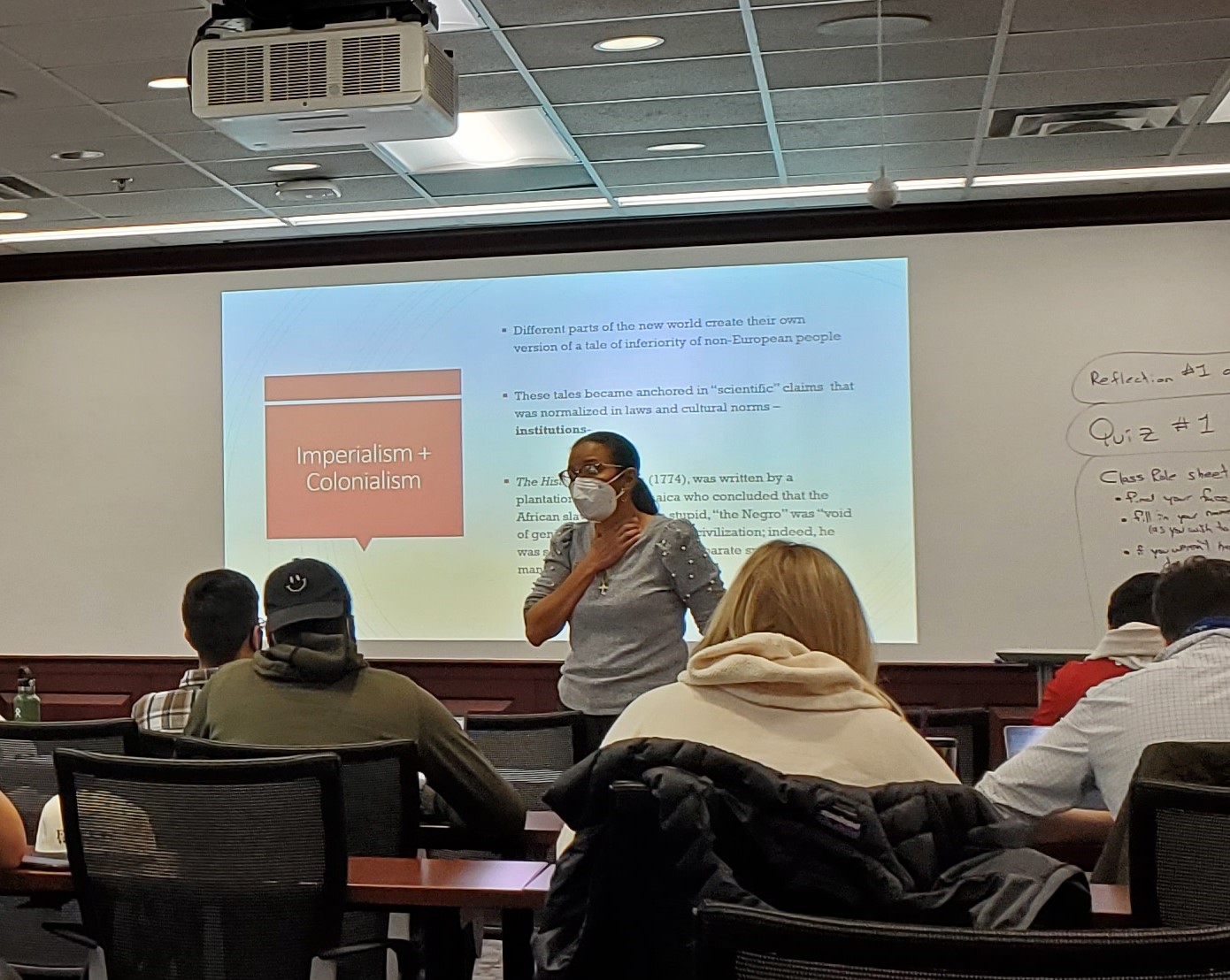Dawn Elliott and John Harvey Teach How Barriers of Race, Ethnicity and Gender Affect Economic Outcomes
Dawn Elliott, Ph.D. and economics department chair John Harvey, Ph.D. wanted to do something within the department to aid TCU's ongoing commitment to diversity, equity and inclusion (DEI). The result was a class dedicated to exploring the economic barriers around race, ethnicity and gender.

The course, titled “Economics of Race, Ethnicity and Gender,” introduces students to what different economic theories have to offer when explaining the massive differences in socioeconomic status between people of different races and genders and possible solutions to address inequalities. The professors also hope they can start a wider conversation inside their discipline about how it attracts and treats women and persons of color.
Educating Future Economists
According to Elliott, the idea for a class around the economic barriers around issues of race, ethnicity and gender was an idea from Harvey. “Given TCU’s efforts around DEI, especially around bringing DEI into the core curriculum, John (Harvey) thought economics had something to offer to that curriculum effort,” said Elliott.
While Elliott hopes to make a version of the class for first-year students, the professors agreed initially the class would be 40000 level, making it likely open to upper classmen.
“At least for these first couple of rounds, I wanted people who were mature. There’s a big change from first-year to senior year,” Harvey said. “We’re dealing with a very difficult set of issues. I wanted this to be a class for economists, not for someone who wants to be introduced to economics.”

"...In 2016, the net worth of a typical white family was around $171,000; for Black families, it is $17,150. That is horrendous." - Dawn Elliott, Ph.D. on the racial wealth gap
Harvey and Elliott start by teaching students about the differences in socioeconomic status between people of different genders, races and ethnicities. “For example, the Brookings Institute said that in 2016, the net worth of a typical white family was around $171,000; for Black families, it is $17,150. That is horrendous,” said Elliott.
The professors then present students with different economic models and the explanations each has for the inequalities and solutions to them, if that theory believes solutions are needed.
It is a process that Elliott hopes sparks a wider conversation about racial economic inequalities and how to address them. “We know from research that although controlling for education narrows the wealth gap between white and Black families, it remains even at the highest levels of education” she said. “There are policy solutions, such as Baby Bonds, that look very promising in terms of reducing the racial wealth gap,” Elliott concluded.
Diversity in Economics
Besides offering a challenging class for future economists, Elliott and Harvey believe their class highlights issues within the discipline.

The profession has endured several years’ worth of similar headlines critical the profession’s lack of diversity and difficult environment for women and people of color. "It is bothersome. This isn't what I want my discipline to be," Harvey said.
Harvey said he thought the profession's limited examination of issues of inequality between genders and races translated to less diverse group of economists, and more difficult conditions for women and people of color. “Most economists view it (the reasons behind inequality) as something that some other discipline takes care of. It is not our job,” Harvey said.
With their class, the two professors hope to show future economists the benefits the discipline gains from more diverse people and perspectives. “Economics is no different from any other discipline in that we would gain from greater diversity,” Elliott said. “Perhaps going forward, we can attract new and different kinds of students to economics. But we do that by signaling a more friendly environment,” she concluded.
